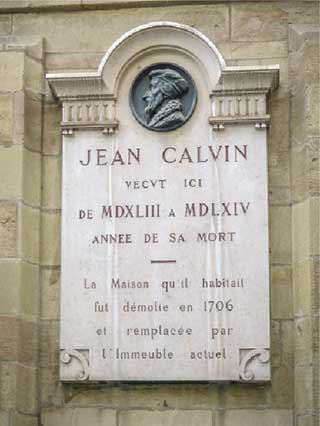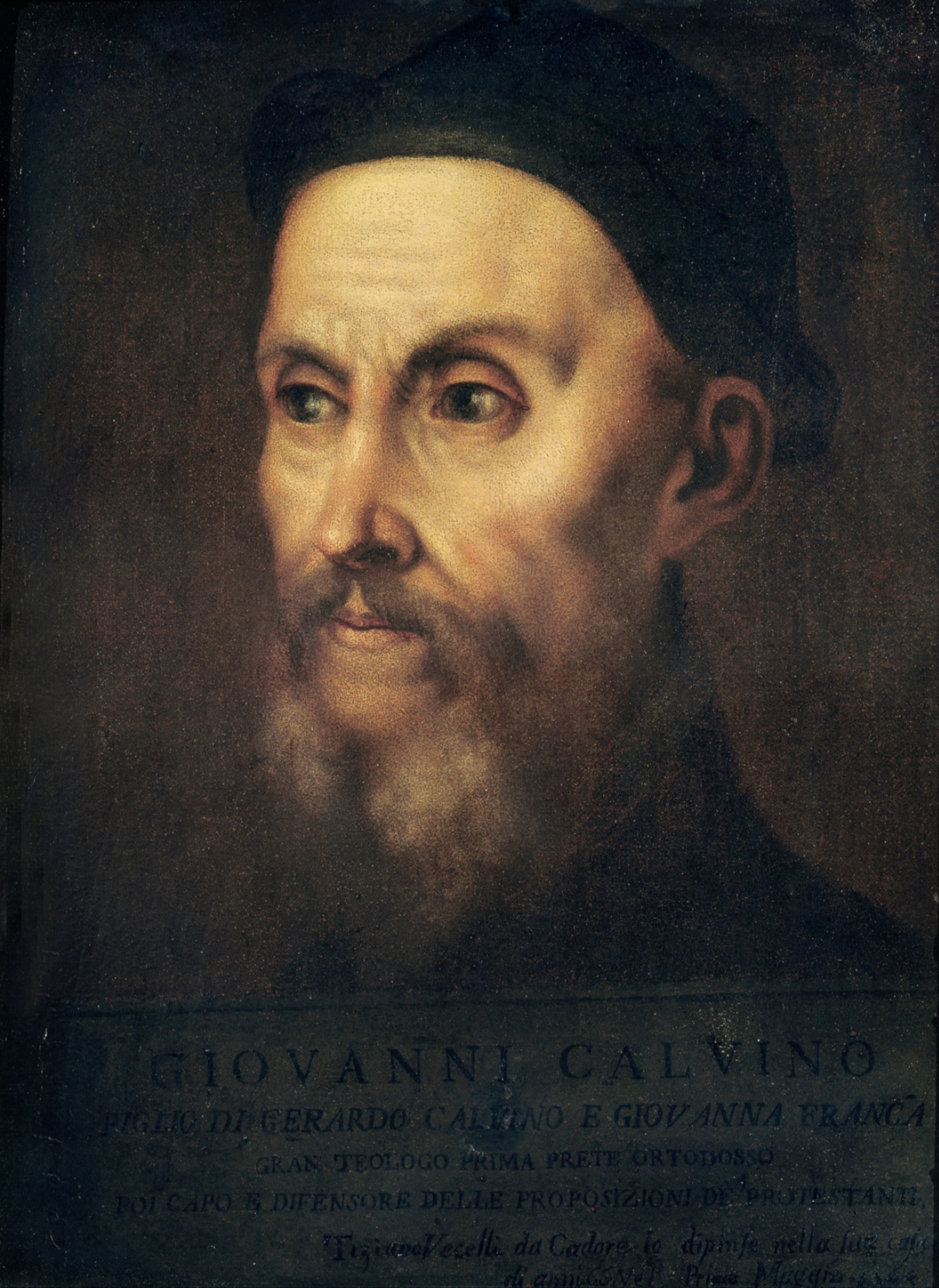
This year, 2017, marks the 500th anniversary of a world-changing declaration posted on a church door by a renegade Roman Catholic monk named Martin Luther. The 95 theses challenged the authority of the church and four years later Luther was excommunicated by special "diet" or assembly convened to address his apostasy. Luther then went into hiding for his own safety, but continued to spearhead the reform movement which was to become the breakaway Protestant church.
The magazine Christian History sent me an issue which is the third of a four-part series on the history of Protestantism. This particular issue is on one of the early reformers, John Calvin, who never met Luther, but forwarded the movement from Geneva, Switzerland, even though he was a Frenchman. It was illegal to be part of this reform movement in France, so Calvin moved to Geneva, supposedly temporarily but ultimately for more than twenty years.

Portrait by Titian
Calvin was a prodigious writer who is often credited or blamed, depending on your perspective, for what's called the Protestant work ethic. It's been suggested that Calvinist asceticism, which discouraged adornment, resulted in Switzerland being a centre for watchmaking because wearing a watch was one of the few permissible forms of jewelry.
His views on the sacrament of communion differed from Luther and while he felt that Christ was present in the Lord's Supper, it was not in a bodily way. He did agree with Luther on the emphasis on the grace of Christ in salvation.
Like Luther, Calvin loved the psalms and singing them, and he was convinced that catechetical or religious education should begin early in life. He was also thoughtful about God's revelation through the beauty of Creation: “There is not one blade of grass, there is no color in this world that is not intended to make us rejoice.”
My thanks to Christian History for making me aware of these issues on Protestantism. Take a look at the first three at https://www.christianhistoryinstitute.org/magazine/
Are you reasonably well informed on your Protestant heritage? Should we make more of a point in emphasizing our roots, or should we put our energy into ecumenism?
1 comment:
The Reformation was a huge development in the history during the European Rennaissance.
It bridged the years between the middle ages and the Enlightenment and modern history. It provoked the Counter-Reformation, the horrors of the Spanish Inquisition and ignited the 30 years war in Europe with its 8M casualties. All of this due to the institutionalized nature of Christendom at that time and the threat that was perceived from the emerging reform movement.
Knowing about the main characters and leaders throughout this period is particularly foundational to understand how we've evolved from that period, and to appreciate the importance of current efforts for ecumenical and multi-faith transformation.
Post a Comment